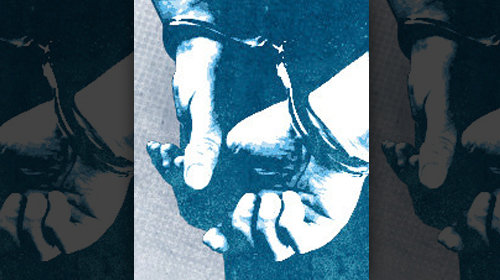
Today, the U.S. has the highest incarceration rate of any country in the world. With over 2.3 million men and women living behind bars, our imprisonment rate is the highest it's ever been in U.S. history. And yet, our criminal justice system has failed on every count: public safety, fairness and cost-effectiveness. Across the country, the criminal justice reform conversation is heating up. Each week, we feature some of the most exciting and relevant news in overincarceration discourse that we've spotted from the previous week. Check back weekly for our top picks.
Mississippi Looks to Address Its Prison Problem
In June 2011, Time ran an optimistic piece about Mississippi's prison system, "." A year earlier, Governing "a model of corrections reform." The fanfare made some sense at the time. Mississippi's prison system had hit its all-time high in 2008 at about 22,600 prisoners, but had fallen by the end of 2010 to about 21,000. Lawmakers had made some changes in the previous several years to expand parole eligibility and divert some defendants from prison. The state was moving in the right direction.
It doesn't seem that way today. Over the course of 2012, Mississippi reversed course significantly, adding 1,000 prisoners to bring it back to 22,300, near its 2008 peak. Today's news is less sanguine about the scenario: "," reads a piece in this week's Jackson Clarion-Ledger.
At least you can't say the problem is going unnoticed in Jackson. Corrections Commissioner Christopher Epps is leading a working group of lawmakers, judges, prosecutors, and other stakeholders to find ways to get the state back on track. Mr. Epps is no stranger to leading the charge for reformÔÇöhe championed the parole changes in 2008 that garnered Mississippi national press coverage. But he'll need to be more ambitious this time around.
Looking at Mississippi's own reports, there are some clear places to start. Admissions to prison in were up by almost 1,000 over . A lot of those gains were made in property crimes and drug sales. Almost 1 in 4 admissions was for drug possession. Probation revocations accounted for 32 percent of prison admissions last year.
These are big pieces of low-hanging fruit, and we've seen other states target them successfully. In 2010, over half of North Carolina's prison admissions were from probation revocations. The state addressed that in 2011 by the amount of time people could spend in prison if revocation was the result of a technical violationÔÇömissing a meeting, failing a drug test, etc. The bill took effect January 2012, and over the course of 2012, the state's prison population fell by ÔÇömore than all but two other states.
Other states, such as , dramatically reduced admissions for drug possession earlier in the 2000s, and each state has seen its prison population fall dramatically, along with crime. As with North Carolina, there are certainly more factors behind the change, but the policy changes to drive down admissions to prison were a major piece of the puzzle. Mississippi should take note.
Other Interesting Items from the Past Week
- Attorney General Eric Holder : "I think there are too many people in jail for too long, and for not necessarily good reasons." Mr. Holder announced that the Justice Department is developing proposals for federal reforms, which he may mention in a speech to the American Bar Association next Monday.
- Tennessee lawmakers earlier this year allowing bail bondsmen to withdraw from their bond when a defendant pleads guilty or is convicted, rather than at sentencing. Trouble is, sentencing can come days or weeks later. That means that the defendant would need to post a new bond or stay in jail until he's sentenced. The change hurts the poor mostÔÇöthose who can't afford to pay for two separate bonds will face jail time even if they're ultimately only sentenced to probation. In the days or weeks behind bars, people can lose their jobs, miss bill payments, or fail to meet family obligations.
Want to know how addicted your state is to incarceration? Check out our new map for updates on recent activity in state legislatures to reduce prison populations, with contextual information about each state.
Learn more about overincarceration and other civil liberty issues: Sign up for breaking news alerts, , and .
